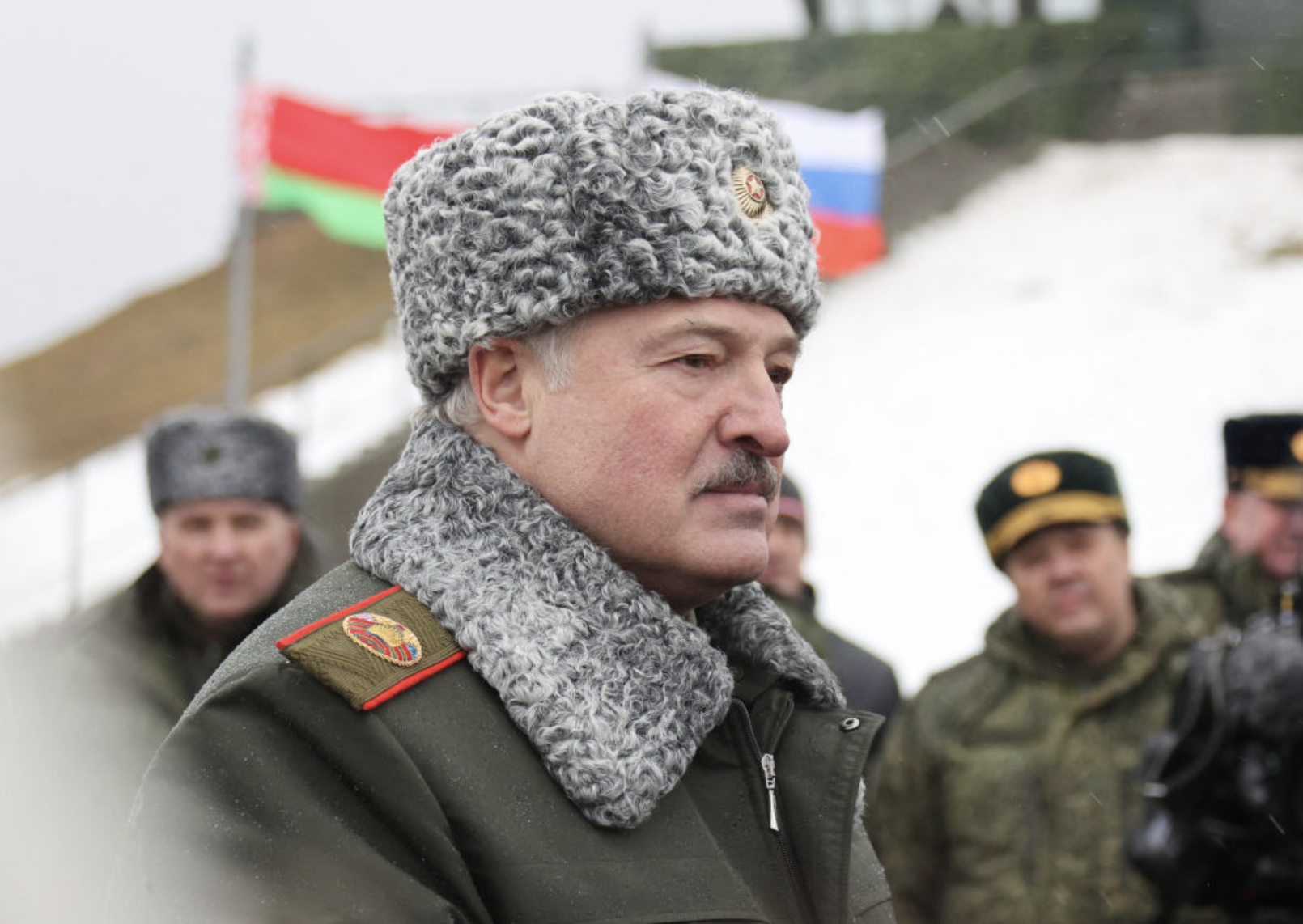Yaroslav Azhnyuk: Why doesn't Ukraine restrict use of the Russian Telegram app?

Editor's Note: The opinions expressed in the op-ed section are those of the authors and do not purport to reflect the views of the Kyiv Independent. Telegram has since issued a response to this article, to which the Azhnyuk has also issued a response.
Almost every day, there is more news about restrictions on TikTok in Europe and the United States. Against this background, the silence in the Ukrainian media regarding Telegram is deafening.
No, I'm not calling for its immediate ban, as was once done in Ukraine with Russian social media platform VKontakte (and that was the right call). But it's time for us to at least start talking seriously about the risks of Telegram, especially when it's installed on the phones of civil servants and the military.
Everyone knows that Telegram was created by Russian entrepreneur Pavel Durov and his team. Behind the façade of Durov's public statements about "independence" and "opposition to the Russian authorities" are lesser-known facts that point to Durov's cooperation with the Russian regime.
On June 18, 2020, after several years of trying to block Telegram in Russia, Russia's state communications regulator Roskomnadzor unblocked the popular app with a comment that it was made possible by "an agreement with Durov and his willingness to fight terrorism and extremism." And on June 30, 2021, Putin cited Telegram as an example of constructive cooperation between the authorities and the social network.
Let me repeat that – Putin praises Telegram for its cooperation with the Russian authorities in the “fight against extremism.”
Apparently, the Kremlin's definition of such a fight includes everything from kidnapping Ukrainian children and striking the Mariupol drama theater to smearing poison on Navalny's underwear and using radioactive weapons against the Skripals in the U.K.
Recently, the Russian messenger became the second-largest messaging service in the world, with a market share of 31%, overtaking Facebook Messenger and second only to WhatsApp.

As of November 2022, Telegram was used by more than 700 million people worldwide, which is twice as many as Twitter users. Its growth rate is impressive.

Meanwhile, a recent study by Ukrainian Rating Research Group dated Feb. 21, 2023, shows that over the past 15 months, the share of Ukrainians who receive political news from Telegram channels has grown from 11% to an impressive 41%.
We see that Telegram channels are now virtually on par with television, whose share has fallen from 55% to 43% over the same period.

"What's the big deal?” one might say. “Let the FSB read my correspondence and know which channels I subscribe to.”
Another cohort will argue, "There is no alternative to Telegram, it is the most convenient messaging and news service."
In both cases, it is useful to recall the words of Laocoön: "Timeo Danaos et dona ferentes," or "I fear the Greeks even bearing gifts." This is how the Trojan priest warned his countrymen when they were given the Trojan Horse. As we know, they did not listen to his advice.
It is not for nothing that Europeans have ordered all officials to remove Chinese TikTok from their phones. Mobile applications with access to cameras, microphones, and locations are complex systems, and despite all the efforts of Apple and Android platforms, no one can guarantee that these applications will not be used for spying.
First, let’s talk about Ukrainian officials and the military.
From President Volodymyr Zelensky and Presidential Office head Andrii Yermak's public Telegram channels to the popular Trukha channel, or the fact that some use the app for messaging in addition to following channels, we do not talk about the risks posed by the Russian app at the state level.
Yes, in private communication, most military and government officials use Signal or WhatsApp, but they still have the Telegram app installed on their phones and computers.
Are the risks of Telegram worth the ephemeral gain in convenience when compared to messaging on Signal or posting and reading news on Twitter? As a society, we have to start this discussion and search for alternatives. The right decisions often come with some discomfort.

One might say, "If the FSB were reading Telegram, we would have learned about it long ago."
On the contrary - if the enemy has such a valuable intelligence resource, it will hide its capabilities by all means possible. However, there are signals of unauthorized access to Telegram accounts, and we will talk about this in a bit.
Next, let's talk about you and me - "ordinary citizens" whose correspondence about how many eggs to buy in the store we could very well allow to be read by FSB officers.
But it's not that simple. Today’s algorithms and artificial intelligence allow one to analyze the correspondence of all 700+ million users and do a lot of interesting things with this data.
For example, they can identify Ukrainians whose messages contain discussions of military events, and capture changes in mass feelings and tones of conversation over time. Such information, for example, can be used for targeted, timely information and psychological special operations, popularly known as IPSO, which reinforce moods or narratives favorable to the enemy.
Is it possible to access messages via Signal and WhatsApp using the Telegram app installed on the same phone?
Probably yes, although it is a much more difficult and expensive hack, and the attackers need to know the exact target. But that's why European and American regulators do not require just simply "not using" the TikTok app, but also not having it installed on any of your devices.
In addition, each of us, by using the network, makes it more valuable for each subsequent user - a phenomenon known as the "network effect." Why are you on Telegram but not on Signal or Twitter? Because most of your friends are there. The greater the network effects, the harder it is to change these habits.
However, we do have a positive experience with the ban on Vkontakte and Odnoklassniki in Ukraine in 2017. From this experience, we know that finding a replacement is not an impossible task.
In conclusion, let's once again briefly go over the reasons why Telegram cannot be trusted:
- Telegram, and its founder Durov, are praised and trusted by Putin and the Russian government to fight so-called "extremism and terrorism."
- Telegram messages are unencrypted, unlike WhatsApp and Signal, and are stored on the company's servers in plain text that can be read by both humans and algorithms.
- The company's sources of funding are suspect. Until mid-2022, Telegram Messenger did not earn any money, and the costs of servers and the team, which at the time could have reached $2 billion, were allegedly personally covered by Pavel Durov. The funds he raised in 2018-2021 came, in particular, from Russian oligarchs, including David Yakobashvili, Roman Abramovich, Alisher Usmanov, and VTB Bank. I told Yuriy Fedorenko more about this in a recent YouTube interview.
- There have been cases of potential access by the FSB to the correspondence of Russian opposition activists. Also, in private conversations, Russian anti-Putin oppositionists say that no one in their circle trusts Telegram.
- There are several cases of Telegram transferring user data to governments, including data on anti-vaccination activists in 2022, to the German government, and in India, data on users who distributed pirated versions of training courses.
- Telegram has blocked the Smart Voting channel of Russian opposition politician Alexei Navalny. This happened on Sept. 18, 2021, during the elections held on September 17-19. The smart voting Telegram bot was advising users on who to vote for at each polling station to minimize the number of pro-government winners in the election of people's representatives at all levels.
- Durov actively cooperated with the FSB back in the days of Vkontakte, which he also founded, according to a publication by Novaya Gazeta (an allegedly anti-Putin Russian media outlet whose director won the Nobel Prize in 2021, which is also criticized for being "conveniently oppositional" to the likes of Aleksey Venediktov and Ekho Moskvy). This is evidenced by Durov's correspondence with Vladislav Surkov, then Putin's deputy chief of staff, also known as one of the ideologues of the attack on Ukraine and the creation of the so-called "Novorossiya," which Novaya Gazeta managed to obtain.
In the letter, dated December 2011, shortly after the first rallies on Bolotnaya Square, Durov writes:
"As you know, we have been cooperating with the FSB and the K Department of the Ministry of Internal Affairs for several years now, promptly providing information about thousands of users of our network in the form of IP addresses, mobile phone numbers, and other information necessary for their identification."
In the letter to Surkov, Durov defends the idea that VKontakte communities should not be blocked, as this will only lead to an outflow of users to American platforms, which neither Durov nor Surkov control. As we can see, Surkov seems to have listened to the proposed approach:
"Blocking opposition communities on VKontakte will undermine the credibility of our network among passionate young people, which in the long run could negate our technological and ideological efforts to contain the onslaught of foreign social networks in the domestic market ... It will only lead to a serious competitive advantage for the Americans, the end result of which will be a loss of control on our part."
The list goes on and on.
Do I expect everyone who reads this article to immediately delete Telegram from their phones and computers? I doubt it will happen. The power of habit is a great thing. But here's what you can do right now:
- Think about what alternatives you could use for messaging, group chats, and news.
- Initiate the transfer of correspondence with friends, family, and colleagues to other platforms. Not necessarily all at once, one per day.
- The next time you open your Telegram channel, think about whether you could get similar news from another source.
- If you have a large and influential channel, think about alternative platforms and start developing them.
- Forward this article to your friends - you can even do it via Telegram.
Timeo Danaos et dona ferentes.














